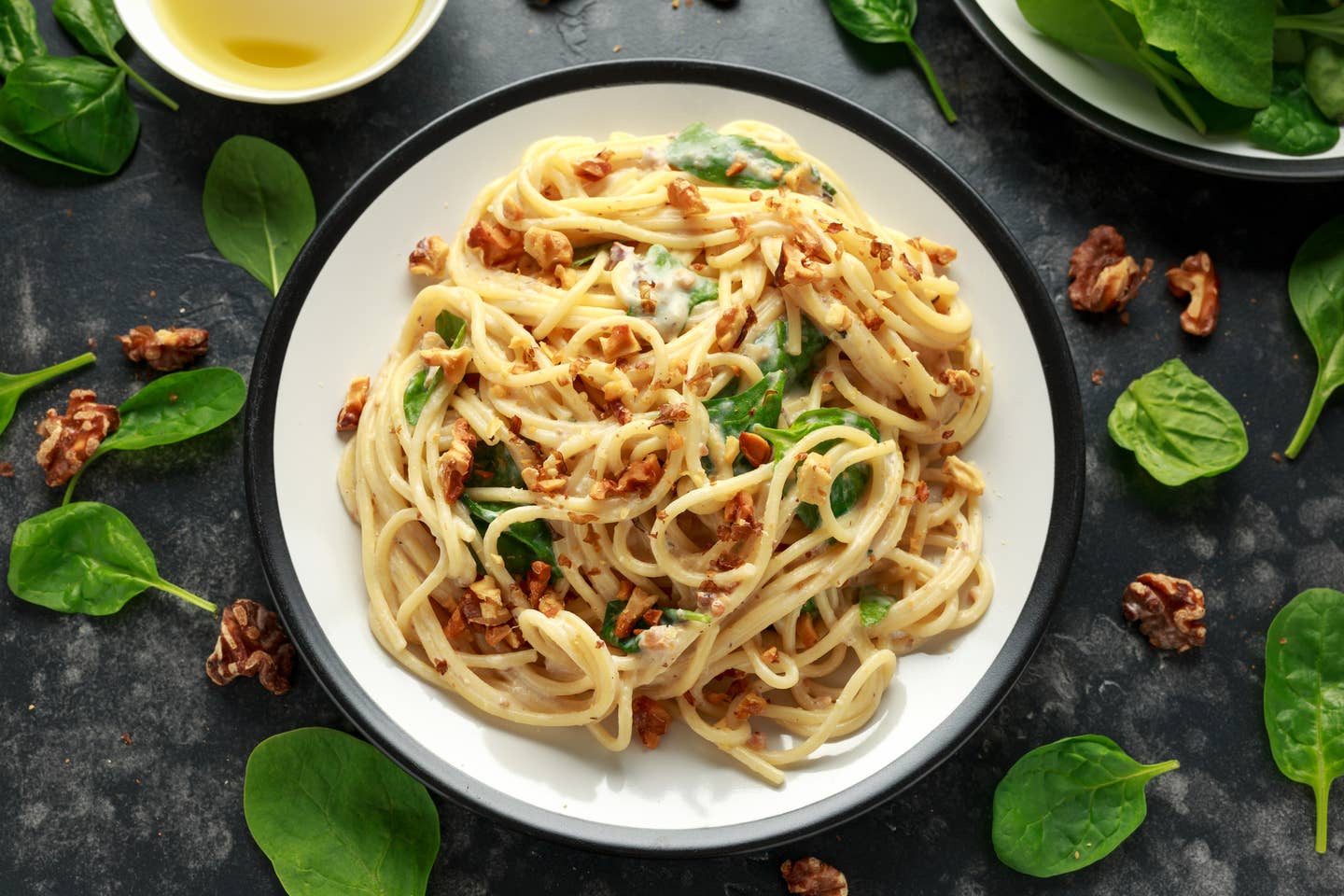
The 7 Foods to Eat to Help Reduce Anxiety, According to Research
If anxiety is getting the best of you, know that you’re not alone. In the years leading up to the pandemic, anxiety was already on the rise, hitting young adults the hardest, according to the Journal of Psychiatric Research. During the pandemic, it skyrocketed and now anxiety is the most common mental condition in America with more than 40 million Americans suffering from it. Meanwhile, our worrying and painful mental state have been driving up unhealthy habits and adult obesity has nearly doubled in two years, according to the CDC.
“Chronic anxiety can lead a person to develop unhealthy coping strategies, such as seeking alcohol or other substances and comfort foods as a way to suppress the anxiety,” says Kristen Farrell Turner, Ph.D., psychologist and educator at Pritikin Longevity Center in Miami. According to health experts such as the Trust for Public Health, which released a report on the CDC's latest findings that links the nation's expanding waistlines to our collective mental health crisis.
Chronic anxiety is also associated with poor sleep and other behavioral changes, including withdrawal from socializing and work absenteeism, all of which can have long-term consequences on our physical health. Worse? If that anxiety is accompanied by what Turner calls chronic sympathetic nervous system activation (think “fight or flight” mode), chronic anxiety increases the risk of diseases such as cardiovascular disease, type 2 diabetes, and poorer immunity to pathogens.
How Eating Certain Foods Can Reduce Anxiety
One way to control that anxiety is by eating health-promoting foods. “Eating food that’s healthy and nourishing is an important way to practice self-care which can decrease anxiety,” Turner says. Plus, because anxiety is typically coupled with a reduced sense of control of your life, reminding yourself that what you eat is in your control can help reduce anxiety. “I recommend adopting an internal voice of control – ‘I choose to eat this’ – rather than a voice of external control like ‘I should or shouldn’t eat this,” she adds.
While it’s hard to specify exactly how much of your diet impacts anxiety, namely because so many other factors are at play, there is a relationship between your gut microbiome, systemic inflammation, and mood. “That means that any foods that improve your microbiome and decrease inflammation have the potential to improve mood,” Turner says.
7 Foods to Help Reduce Anxiety
1. Walnuts
When medical students were given omega-3 fatty acid supplements containing eicosapentaenoic acid (EPA) and docosahexaenoic acid (DHA), they experienced a 20 percent reduction in symptoms of anxiety, according to a study from the journal Brain, Behavior and Immunity. Although fish oil supplements were used in this study, you can also eat omega-3 rich foods like walnuts. They contain another omega-3 fatty acid called alpha-linolenic acid which can be converted to EPA and DHA.
2. Iceberg lettuce
Iceberg lettuce has gotten a bad rap over the years, with people believing it has little nutritional value. Not only is that not true but there’s also a little-known benefit of eating iceberg lettuce. “Iceberg lettuce is in the family of the herb wild lettuce that helps calm the central nervous system, making you feel relaxed and less stressed,” says Sara-Chana Silverstein, R.H., master herbalist in New York City and author of MOODTOPIA.
3. Bacopa
This herb helps combat the type of stress that causes brain fog and memory as a result of anxiety, Silverstein says. Studies have found that the Ayurvedic plant helps promote calm, memory, and cognition. She recommends taking herbs in liquid form, two to three times a day for a month to six weeks if you’re going through a particularly stressful or anxious period.
4. Turmeric
This spice that’s famous for its use in Indian dishes can also be an anxiety buster. In one study from the journal Biochimica et Biophysica Acta, curcumin, the ingredient in turmeric that gives turmeric its yellow color, increased DHA in the brain, which helped reduce anxiety. Another study in the Chinese Journal of Integrative Medicine found that curcumin reduced anxiety in individuals with obesity.
5. Brazil nuts
These nuts are high in selenium, an antioxidant with anti-inflammatory properties. “Inflammation is often high with anxiety so reducing it can be helpful to improve mood,” says Meredith Rofheart, M.S., R.D., a registered dietitian at Culina Health in New York City. Brazil nuts also contain high amounts of vitamin E, adequate levels of which can help improve mood and anxious feelings.
6. Matcha tea
Love it or hate it, matcha comes with a long list of benefits, including cutting anxiety. In this study from the Journal of Functional Foods, albeit on mice, researchers found that matcha’s calming effects could help lower anxiety.
7. Dark chocolate-covered cherries
Who doesn’t feel better after eating chocolate? Several reasons, though, make this combination an anxiety-reducing power team. Cherries are high in magnesium and a polyphenol called quercetin, both of which have calming effects, Rofheart says. Plus, dark chocolate alone can lessen anxiety, thanks not only to its magnesium content but also to its flavonoids and tryptophan. “Flavonoids are a stress reducer, and the body uses tryptophan to increase mood-boosting neurotransmitters like serotonin,” she adds.
Bottom Line: Eat These 7 Foods to Lower Anxiety.
While these foods can help to reduce anxiety, if you’re experiencing significant distress or if your anxiety is affecting relationships, work, or your physical health, don't hesitate to seek help, Turner says. Even just a few sessions with a mental health professional can help you start to feel better.
For more expert advice, check out The Beet's Health & Nutrition articles.
More From The Beet






